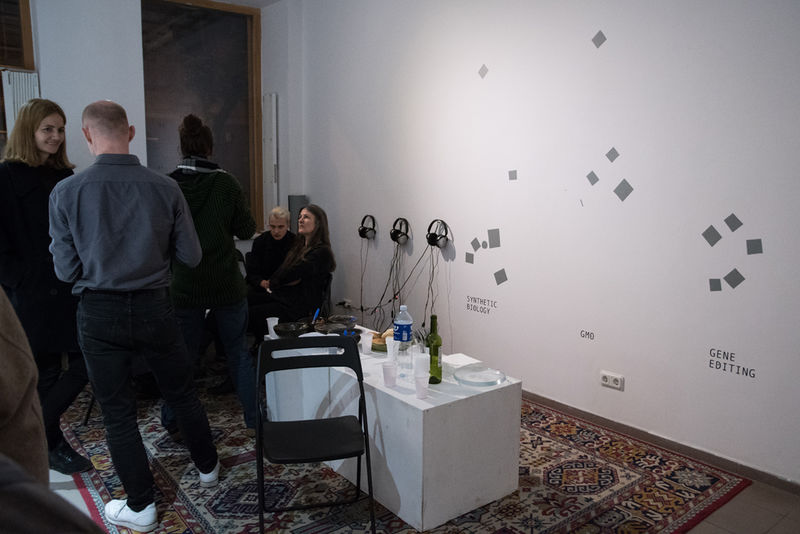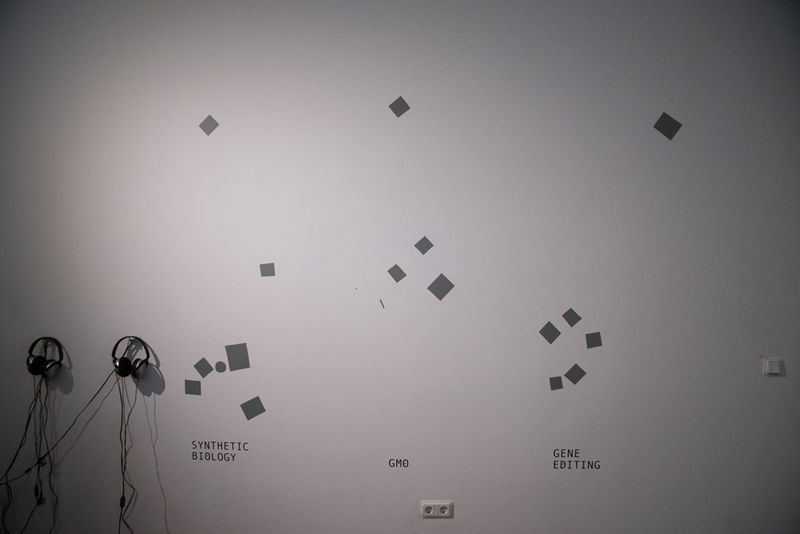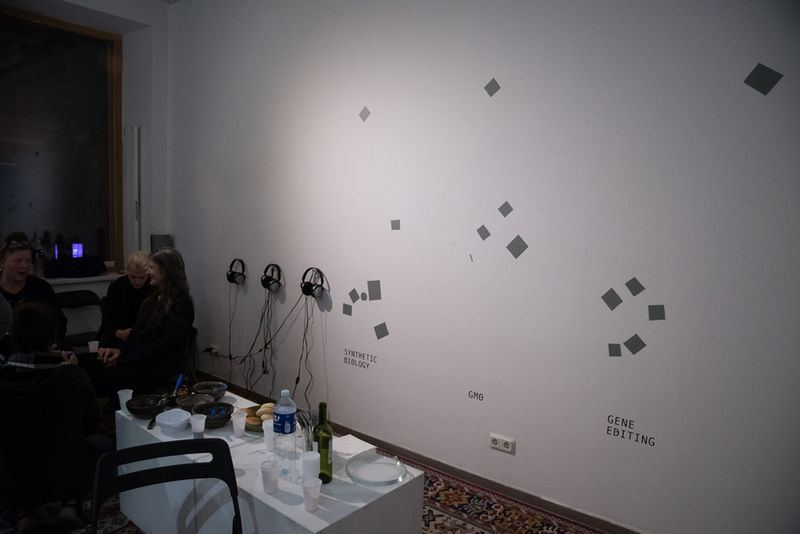


Self-repair (work in progress) Laboratory. 2017-2018 n number of participants Concept Contributions Contact Contributions [un]ethical Mindaugas Gapševičius, Gabrielius Jakutis, Miglė Kalvaitytė, Lina Rukevičiūtė, Emilija Vasiliūnaitė The interactive installation invites audience to consider questions in relation to modified living organisms. Three contexts are proposed: Gene editing, GMO, and Synthetic biology. In each context audience is invited to evaluate the proposed contexts: "agree," "do not agree," and "neutral." The evaluation is done by sticking the provided stickers on the wall. Further comments might be added on the provided stickers. Context #1. Gene editing Inherited information is constructed from functional units, called genes. Genes define every feature of a certain organism. Different gene variants predispose trait-variety. Gene mutations are often the cause of many diseases such as type I diabetes or cancer. Scientists can fix genes by altering their sequence and correcting mutations. Recently, human embryo genome was also successfully edited. This could not only help to treat currently incurable congenital diseases, but also give a spur for the creation of superior humans. Context #2. GMO Genetically modified organisms (GMOs) are created by means of gene engineering. Genetic code of naturally existing organisms is changed to provide them with new qualities such as higher productivity or lower susceptibility for diseases. GMOs are used in scientific research, pharmacy, food production. Wide application of GMOs raises many concerns of biosafety that aim to draw attention to the risk of GMOs spreading in the nature. Context #3. Synthetic biology Synthetic biology applies methods of gene engineering to enhance or create a whole new biological system and to use it for the means of mankind. It could be microorganisms that store digital information or detect and clean environmental spoilage. Synthetic biology allows to exceed the limits of current biology and imagination, when creating organisms, that were probably never meant to appear in the course of natural evolution.

